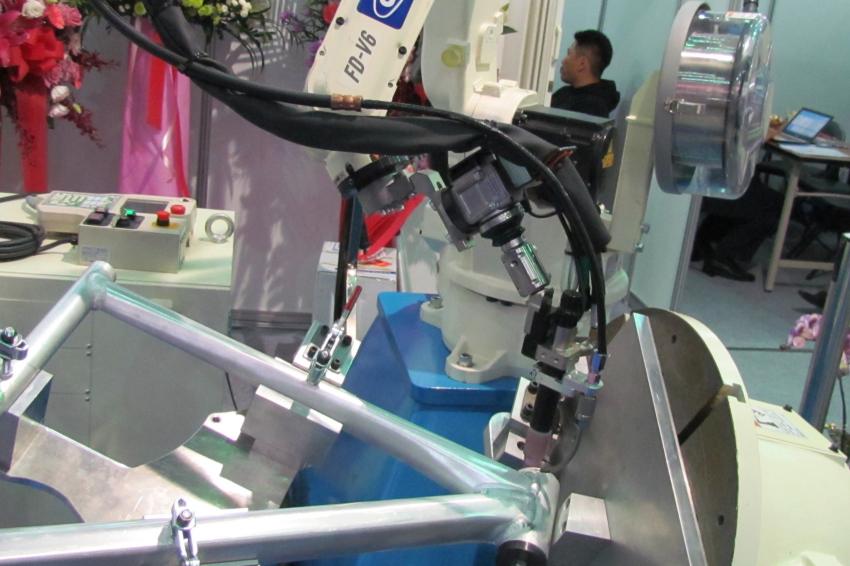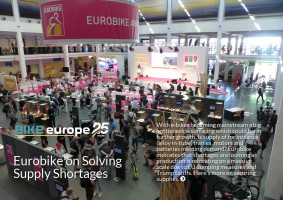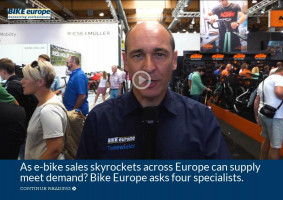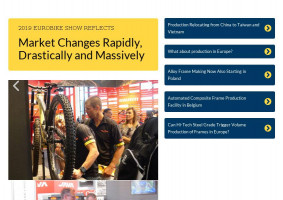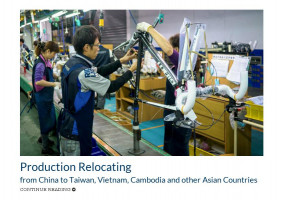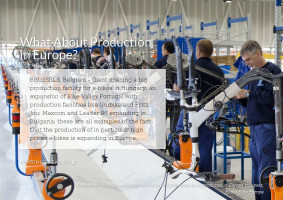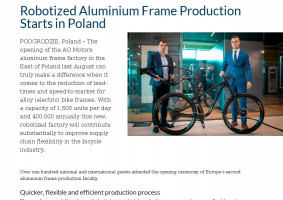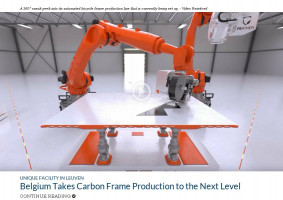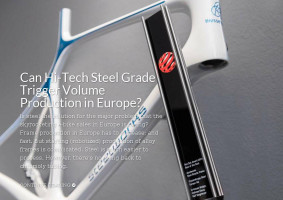Is steel the solution for the major problem that the skyrocketing e-bike sales in Europe is facing? Frame production in Europe has to increase; and fast. But starting (robotized) production of alloy frames is complicated. Steel is much easier to process. However, there’s no going back to chromoly tubing.
Continue reading
Is a new highly durable steel grade with higher strength and stiffness than aluminum with the forming capabilities of carbon offering the solution?
It was already identified as a problem years ago. And since then initiatives like with the company Triangles, that is now with robots producing alloy frames in Portugal, materialized. But that provided only a small relief to the pressure on alloy e-bike frame production. Much bigger challenges have manifested since as demand for e-bikes skyrocketed all around Europe. Also the anti-dumping measures in place on e-bikes imported from China into Europe as well as the Trump tariffs for the USA are coming into play here.
For Europe the anti-dumping measures that are being applied since the start of this year result in the fact that production is to relocate of a big part of the 750,000 electric bicycles that were imported into the EU from China in 2018. It comes on top of a steep rise in demand for e-bikes across Europe with in almost every EU country sales increase from 15 to close to 50 percent in 2018. It raises questions on where (alloy) frame production in Europe stands now and how fast it can be expanded?
Steel frame production in Europe
Will steel offer the solution for everything that is now going on around frame production in Europe for e-bikes? Can production capacity be expanded quickly; is there steel available that has the right properties and meets all modern requirements with regard to complexity and tolerances? Frame production expert Luigi Seghezzi from Bike Machinery/Mair (the companies that recently joined forces) answers these questions. He forecasts that within the next 3 years some 3 million e-bike frames will be made in Europe. In particular in Portugal, Poland and in Romania (by Italians). He expects that the biggest part of the 3 million frames will be made with what he referred to as ‘light metal’. Asked whether this means the return to ‘old school’ Reynolds 538 double or triple butted tubing, his answer was no. It will be a very new type of light metal which will be matching the lightweight characteristics of alloy frames. In the meantime the next step has been taken in Poland as industry insiders already expected. AG Motors opened a robotized frame production facility in southeastern part of the country the country, as you can read on page 5 of this online magazine.
‘Dual-phase steel’
Meanwhile it has also become clear what the ‘light metal’ is that Luigi Seghezzi mentioned. Worldwide leading steel supplier thyssenkrupp Steel Europe revealed that in a press release on the Red Dot Design Award the company recently won for its high-tech steel bike. This road racer has a frame designed by thyssenkrupp which is made from, as the company says “Dual-phase steel, an advanced, highly durable steel that has a higher strength and stiffness than aluminum and the forming capabilities of carbon materials.”
“The galvanized steel sheet is initially formed into two half tubes which are then welded together in an automated, high-precision 3D laser welding process. This technology, otherwise used only in the high-tech industry, produces virtually invisible welds of consistent high-end quality for bicycle frames and demonstrates the completely new design possibilities offered by steel. The extremely high stiffness of the steel frame in the area of the pedal bearings ensures optimum power transmission and assists propulsion. At the same time the high flexibility of the saddle tube and the intrinsic damping properties of the material make for a fatigue-free, comfortable ride.”
Breaking with conventions
Thyssenkrupp Steel Europe (27,000 employees and 9 billion euro annual turnover) also points out: “Modern bicycle frames are generally made from aluminum tubes or carbon fiber laminates to achieve high stiffness, though this inevitably comes at the cost of comfort. This was the starting point for steelworks. We took inspiration from the diverse properties of steel. Without the high strength of steel, the bionic design of the saddle tube would not have been possible,” says Jia-Uei Chan, leader of the steelworks project. Using thin steel sheet and state-of-the-art production processes, steelworks breaks with the conventions of customary frame manufacture to combine the otherwise conflicting design demands of stiffness and comfort.”
